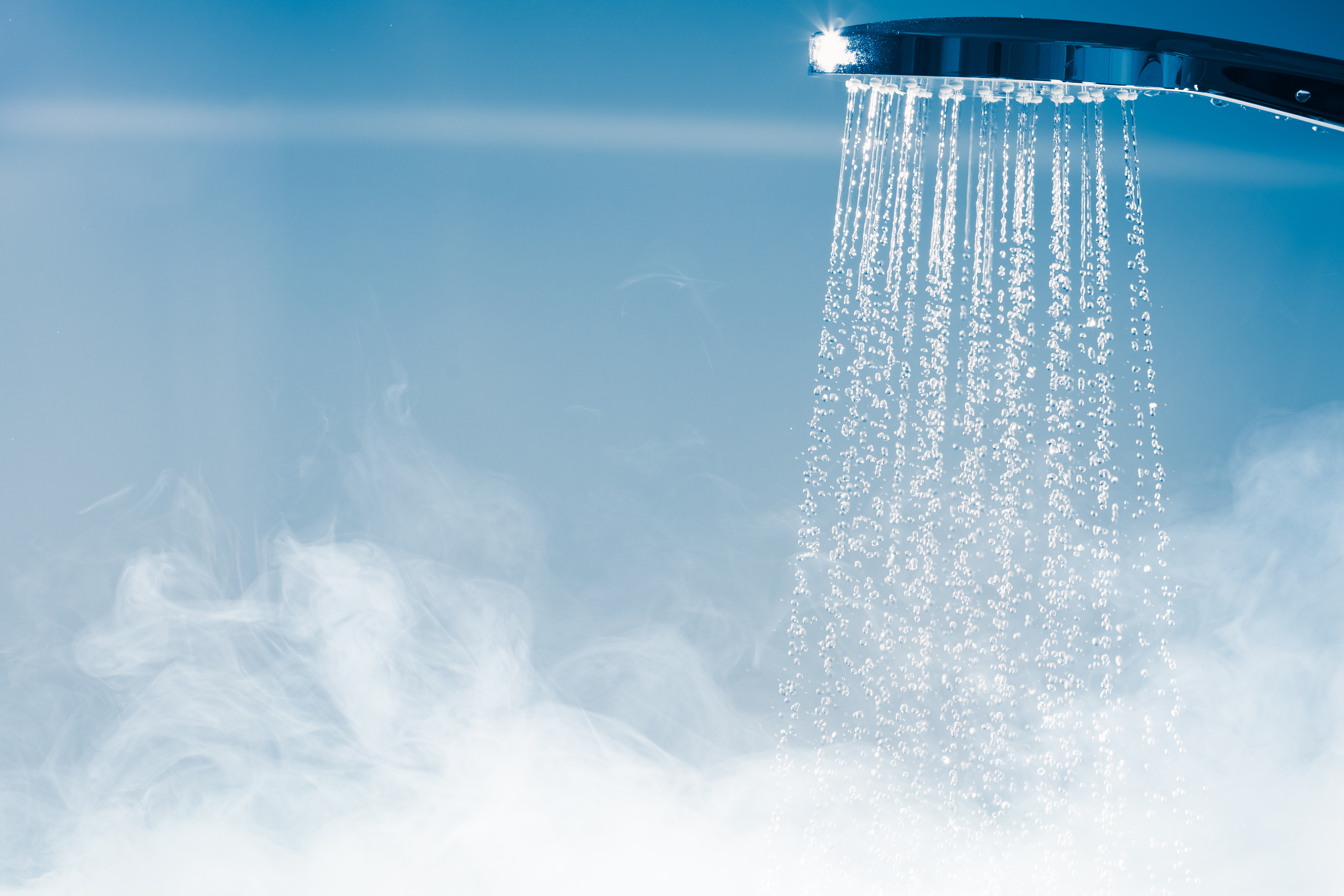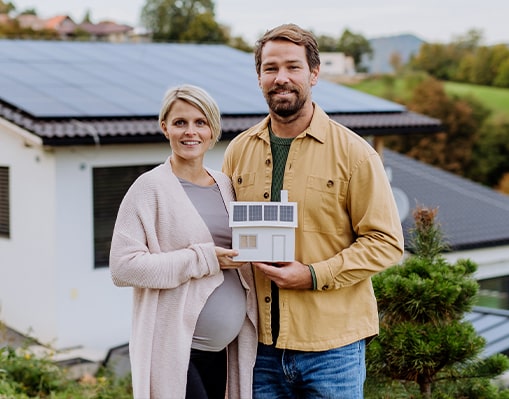
Hot water represents 25% of average household energy use. In most parts of Australia, you can reduce this part of your energy bill by 80% with a correctly sized hot water system.
You can choose between a solar hot water heater and a heat pump to reduce your energy bills.
Get considered advice from long term industry professionals for your hot water needs.
What is Solar Hot Water
A solar hot water system gathers heat from the Sun and transfers it to the water in a tank. Traditionally this was done using a form of rooftop mounted panels that come as flat plate collectors or evacuated tubes that capture the heat from the Sun’s rays to directly heat the water in the panel.
These days heat pumps are more popular. A heat pump has no roof mounted panels. Rather, it uses technology similar to a reverse cycle air conditioner to heat the water. The heat pump extracts heat energy from the air and transfers it into the water. As the air is heated by the Sun, this is also considered to be a solar hot water heater.
How Solar Hot Water Works
Solar hot water systems with solar collectors use the sun’s rays to directly heat the water in the collector and use a small circulating pump to circulate the water between the tank and collector. When there isn’t enough sunshine to fully heat the water, a gas or electric booster will kick in as a back-up. If you are installing a new solar hot water system, it would be ideal to choose electric boost and further remove the use of gas in your home. Solar hot water systems only heat water and don’t generate electricity.
Heat pump systems have the great advantage that they do not require roof space which is often already crowded with PV panels for electricity generation. Heat pumps are a clever technology that uses 1 kW of electricity to generate up to 4.5 or more kW of heat. This technology works excellently in conjunction with a Solar PV system to often provide completely free hot water and further reduce your energy bill.


The Benefits of Solar Hot Water
- Solar hot water systems and heat pumps can reduce a large part of your hot water bill
- Solar hot water systems and heat pumps can reduce your carbon footprint
- Heat pumps allow you to use the excess electricity that you generate to further reduce your energy bills
- Heat pumps can often simply replace a non-solar hot water system without the need for on-roof panels and plumbing.
Testimonials
“I love showering in hot water that is costing me nothing to produce.”
Steve
FAQs
What is a heat pump for hot water?
How does a heat pump for hot water work?
A heat pump to generate hot water works by extracting heat from the air outside the unit using a refrigerant. The refrigerant is compressed and circulated through a coil inside the unit, which heats the water. The heated water is then ready for use, and the process is repeated to maintain a constant supply of hot water.
What are the benefits of a heat pump for hot water?
A heat pump for hot water offers many benefits, including lower energy bills, reduced carbon emissions, and longer lifespan compared to traditional water heating systems. Additionally, it provides hot water on demand, making it more convenient and efficient for households.
Are heat pumps for hot water suitable for cold climates?
Yes, heat pumps for hot water can be used in cold climates. They are designed to work efficiently in a wide range of temperatures and can heat water even in sub-zero temperatures.
How can I install a heat pump for hot water in my home?
Next steps:
There are government rebates and incentives available depending on the state you live in. Be careful to choose a reliable, knowledgeable and professional installation company who will still be in business to support any warranty claims.
There are two ways to arrange for sizing and installation of solar panels in your home:
- Get quotes from reputable businesses
- Buy from a community group/bulk buy program where the installation company and the equipment have been thoroughly vetted by knowledgeable experts.
One such community group buy scheme is Go Renewable Energy Group Buy Project (visit their website here).
